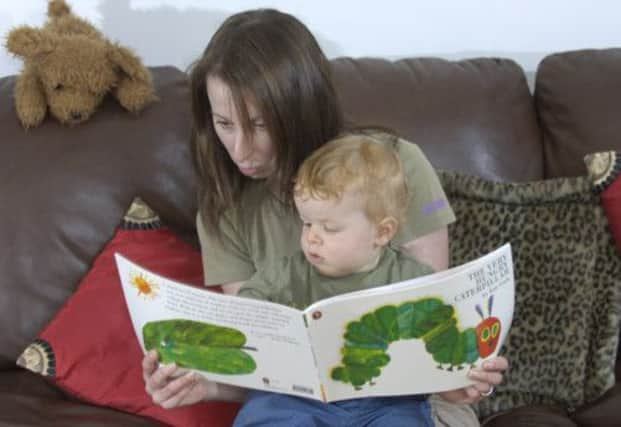Children who are read to ‘are less violent’


John Carnochan, a founder of the violence reduction unit who is now based at St Andrews University, said improved literacy in early years education was one of the ways of reducing violent offending.
Mr Carnochan, a former detective chief superintendent with Strathclyde Police and a current member of the Scottish Government’s Early Years Task Force, said a body of research had shown children who are read to by their parents are more likely to perform well at primary school and less likely to get into trouble at secondary.
Advertisement
Hide AdAdvertisement
Hide Ad“The thing we need to give our children is our time,” he said. “If you are reading to your son or your daughter, you are giving them your time.
“We know children acquire key attributes in the first four years of their lives – communication, empathy, emotional skills, how they make relationships.
“When you don’t acquire these skills, you don’t do well at nursery, you do less well at primary and then you get into trouble at secondary.”
He added that few of the present inmates at Polmont young offenders’ institute, or Glasgow’s Barlinnie prison, would admit to having had a positive role model when growing up.
Now a specialist consultant in the school of medicine at St Andrews University, Mr Carnochan helped establish Strathclyde Police’s violence reduction unit in 2005, which had its remit extended nationwide a year later by the then Scottish Executive. A national centre of expertise on tackling violence, the unit advocates using public health measures to help tackle offending.
He addressed teachers in Edinburgh on Saturday to mark the first anniversary of the South East Scotland Literacy Hub, a partnership of five local authorities, which is being supported by the Scottish Government to help implement an national initiative to improve reading and writing from the early years onwards.
A Scottish Government spokeswoman said: “Our ambition is to improve and increase early learning and childcare, which is accessible and affordable for all children, parents and families and matches the best in Europe. We are investing over £2 million a year in the PlayTalkRead campaign, which promotes the importance of parents interacting with their children to give them the best possible start in life, and the Bookbug scheme which provides books for young children.
“Our Literacy Action Plan which aims to ensure all Scots have the literacy skills they need for learning, life and work.”
Advertisement
Hide AdAdvertisement
Hide AdIn 2011, figures showed almost 60 per cent of inmates attending prison learning centres in Scotland during the previous year were illiterate, with 52 per cent also “lacking functional numeracy”.
Earlier this year, figures showed nearly 20 per cent of secondary pupils are failing to meet the standards set out under Scotland’s fledgling curriculum.